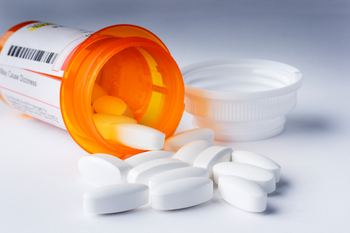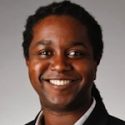With a few questions, pharmacists can make Ramadan’s fast safe for Muslim patients
Mohamed Amin says for those with chronic illnesses or prescriptions with meal-based schedules, long stretches without eating or drinking can be particularly dangerous. But it doesn’t have to be that way.
Nearly a quarter of the world’s population is celebrating Ramadan this month, but many of them are fasting in observance of the Muslim holy month at unnecessary risk to their health.
For those with chronic illnesses or prescriptions with meal-based schedules, long stretches without eating or drinking can be particularly dangerous. But it doesn’t have to be that way, according to Mohamed Amin, a UW–Madison School of Pharmacy graduate student.
Amin has been studying the role of community pharmacists in his native Alexandria, Egypt, especially the ways they take initiative to alter prescriptions for patients who fast.
“In many ways, Egypt is a developing country,” Amin says. “And in a developing country, pharmacists have a larger role in health care. By many of their patients, they are seen as a substitute for a general practitioner.”
However, according to Amin’s work about pharmacists in and around Alexandria, not nearly enough of those pharmacists take the time to speak to their patients about how their medication regimen can be adjusted over the course of more than four weeks most spend forgoing food and drink from dawn to sunset.

Amin says pharmacists should play a role in helping patients adjust their medications during Ramadan.
“Diabetes is a common example,” Amin said. “When you are fasting, it can be hard to control your blood sugar. And, in fact, many diabetic patients are religiously exempted from fasting during Ramadan.”
Many Muslims, however, undertake the ritual — an obligation of all able-bodied Islamic adults during the month-long Ramadan celebration — no matter the state of their health.
“Three-quarters of the pharmacists we surveyed in Alexandria told us more than 60 percent of their patients were fasting during Ramadan,” says Amin, who has presented his studies this year at meetings of the American Pharmacists Association and American Association of Colleges of Pharmacy.
“But the pharmacists are telling us most discussions with patients occur in the first week of Ramadan or one to three days before. That’s just too late,” he says. “Fasting patients may adjust their medications regimens on their own, and then come in with a resulting health problem.”
Alexandria’s community pharmacies often lack sophisticated digital health record systems, but pharmacists still get acquainted with their patients with chronic health problems. That leaves the pharmacist in a good position to ask repeat patients — say, diabetes patients replenishing their insulin — about Ramadan and fasting weeks or months ahead of time.
“Many Egyptian pharmacists believe they can contribute, and view this as an opportunity to provide service that makes them stand out with customers and protect the health of patients,” Amin says.
“Fasting patients may adjust their medications regimens on their own, and then come in with a resulting health problem.”
Mohamed Amin
All they need to do is ask.
“Patients may be afraid of what the pharmacist or doctor will say, and not without reason. More often than not, they will say, ‘It’s too much of a risk. You should not fast,'” Amin says. “But whether or not patients are willing to consider not fasting, they do need to know when they should break the fast for health reasons — when their blood sugar, for example, reaches a point at which they should break their fast no matter the time of day.”
Amin’s research suggests schools of pharmacy and medicine around the world should put more emphasis on teaching their students to be mindful of cultural traditions that play into patients’ treatment decisions.
“In predominantly Muslim countries, certainly, but this should also be on the mind of pharmacists and doctors who serve areas with large Muslim populations in non-Muslim countries,” Amin says.
The process should be even simpler for members of sophisticated health care systems.
“In a city like Dearborn, Mich., where there are large numbers of Muslims, there should be notes in patient histories, in refill instructions,” Amin says. “We should be seeing pamphlets about Ramadan in pharmacies around the world.”
And more work is needed to prepare health professionals to make treatment decisions.
“We know hypertension is another very important health issue during fasting, but there are simply no guidelines for management of hypertension during Ramadan,” Amin says. “That requires more clinical research.”
While that work is in progress, Amin and collaborators are preparing an all-encompassing communication model that that would emphasize concordance between health professionals and patients with regards to fasting during Ramadan.
“The key for effective communication is that health professionals apply principles of culturally congruent and respectful care to fasting Muslim patients,” Amin says. “I don’t want patients to make the adjustment without consulting their pharmacists. Pharmacists don’t want that. It should start with an open-ended, low-pressure question: ‘What are your plans for Ramadan?'”
Tags: health & medicine, international, religion



